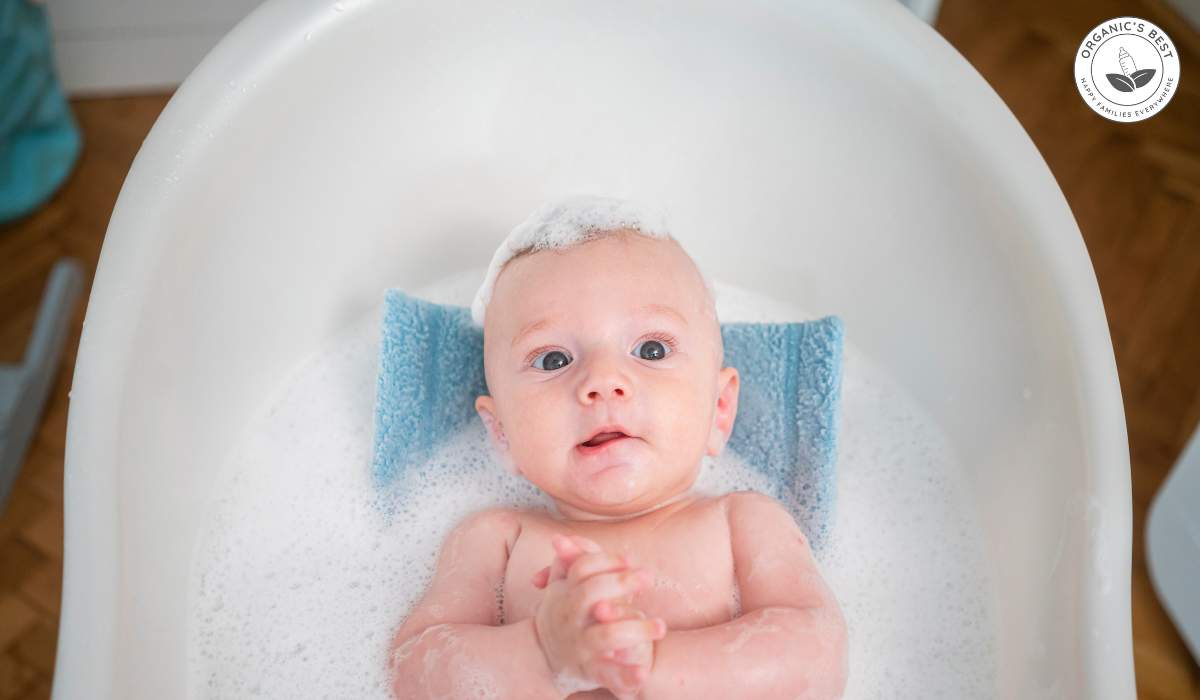Click to Get 2 FREE Boxes/Cans
Only New Customers! Click HERE to Get 2 Extra Boxes/Cans for Free With Your First Order.
BABY FORMULA
Offering new parents top-quality European infant formula from renowned brands like HiPP, Holle, Kendamil, and more. If you’re uncertain about which product to choose, our Formula Finder can help you make the best decision for your baby.
Baby Food
Offering new parents a premium selection of European baby foods, including jars, pouches, cereals, and snacks from esteemed brands like HiPP and Holle.
Baby Refusing Bottle: What to Do If Baby Won’t Drink Formula
by Agustina Fernandez January 21, 2025 8 min read

Ensuring your baby receives the proper nutrition from formula or breast milk is an important part of parenting. These sources provide essential nutrients from the start, like proteins for growth, fats for brain development, and calcium for strong bones, which are all vital for your baby's overall development during these early years.
While breastfeeding is the preferred modality of milk consumption for babies, as of 2018, 59% of infants rely on bottles for feeding. When your little one refuses the bottle, it's natural to feel concerned. Could it be the formula? The bottle? Something else entirely?
The good news is that this common issue often has a simple solution. Many parents encounter this challenge, and with a few adjustments, you can usually get your baby excited about feeding again in no time!
In the meantime, we're here to support you. By understanding the reasons behind why your baby is refusing bottle and learning how to address them, you can ease your concerns and avoid some of the stress that can stem from bottle feeding. Keep reading to discover the causes, solutions, and helpful tips for when your little one turns away from the bottle.
Table of Contents
What is Bottle Aversion/Refusal?

Bottle aversion, or refusal, occurs when a baby repeatedly rejects bottle feeds, whether they are formula or expressed breast milk. Unlike occasional fussiness, bottle aversion is a persistent issue that affects your baby's nutrition and growth. If your baby consistently takes less milk than expected, only feeds when asleep, or isn't gaining weight properly, it may be time to investigate further.
Many parents face this or similar challenges, with nearly 25% of parents reporting feeding-related issues with their child at some stage in their development.
Bottle aversion can arise from a variety of causes, from nipple issues to medical conditions like reflux or even feeding techniques. With so many potential factors at play, it can be hard to know where to begin when it comes to finding a solution.
Identifying the Causes of Bottle Refusal
Getting to the root of why your baby is not enjoying their bottle may take some digging. Below, we explore each possible cause in detail to help you identify why your baby won't take formula.

Nipple Issues and Bottle Temperature
The type and size of the bottle nipple can significantly impact your baby's feeding experience. For example, if the nipple flow is too slow, your baby may struggle to get the milk out fast enough and lose interest. Alternatively, a flow that's too fast can overwhelm them, causing coughing, choking, or spitting up. Testing the flow rate by holding the bottle upside down can help. Look for a steady drip rather than a stream.
Temperature matters, too. Some babies can be pretty picky about how warm their milk is, and most seem to like it lukewarm. If you usually serve it cold, try switching things up a bit. You might find that a warmer bottle hits the spot. So, if your baby suddenly starts turning down the bottle, it could be worth playing around with the temperature to see what works best.
Underlying Medical Issues: Reflux, Constipation
Sometimes, a baby's feeding challenges can be linked to underlying medical issues, such as reflux, constipation, or oral thrush. Ear infections, nasal congestion, or a tongue-tie can also make sucking painful or difficult, thus causing sudden bottle refusal. These conditions can cause discomfort or pain during feeding, which may lead your baby to associate bottle-feeding with a negative experience.
For instance, reflux, also known as gastroesophageal reflux (GER), occurs when stomach contents flow back into the esophagus, causing irritation and discomfort. Babies with reflux may arch their backs, cry during feedings, or refuse to eat altogether.
Constipation can also play a role in feeding difficulties. A baby struggling with infrequent or hard stools might feel bloated or uncomfortable, making it less appealing for them to take in more food. Similarly, oral thrush, which is a fungal infection in the mouth, can cause soreness and irritation, making it painful for your baby to suck on the bottle nipple.
If your baby seems distressed during or after feedings, or if you notice signs like vomiting, frequent spitting up, or fussiness, it's essential to observe their behaviour closely, as these could be signs of an underlying medical issue.
If you notice any change in your child's feeding habits or if your baby suddenly refuses bottle feeds, it is best to consult with your pediatrician to ensure that your child is properly diagnosed and receives appropriate treatment.
Baby Teething
Teething is a significant milestone in your baby's development, but it can also bring about its fair share of challenges, especially when it comes to feeding. As teeth begin to push through the gums, your baby may experience discomfort or pain that can make sucking on a bottle unpleasant. This discomfort often leads to sudden bottle refusal, even in babies who previously had no issues with feeding.
During the teething phase, babies can become fussier and more irritable, showing signs such as drooling and swollen gums, and you may even notice them trying to chew on just about anything. Teeth typically start poking through around the 4-month mark but can also make their entrance anytime between 3-7 months.
To help ease the discomfort associated with teething, you can offer chilled teething rings or toys or gently massage your baby's gums with a clean finger before feeding, which may make it easier for them to take the bottle.
Thankfully, teething is temporary, and with some adjustments and extra care, you can help your baby navigate this phase more comfortably!
Formula Taste
Furthermore, some babies are super sensitive to changes in flavour, especially when they're making the switch from breast milk to formula. Breast milk has that sweet, familiar taste they've grown used to, so introducing formula, which has a different flavour and texture, might throw them off a bit.
If your baby seems to be turning their nose up at the bottle, the taste might be the issue. One of the easiest ways to help them adjust is by mixing the formula with a bit of breast milk. Start with mostly breast milk and a little formula, then gradually increase the amount of formula over time. This tip also works when switching formulas or when changing formula stages!
There are also different types of formula out there, so if your baby isn't loving one kind, it might be worth trying another. Sometimes, a simple switch to a different brand or type (like goat milk formulas) can make a big difference. It might take a few tries, but most babies eventually get the hang of it.
How to Keep Baby Hydrated When Refusing Bottle

Maintaining hydration is critical, especially if your baby isn't taking in their usual amount of milk. Offering small, frequent feeds can help, as can using alternative feeding methods like a spoon, cup, or syringe for younger infants. Keep an eye on wet diapers-fewer than six in 24 hours might indicate dehydration, which means that it's time for a call to the pediatrician.
Bottle Refusal Tips for Parents
Here are some strategies that can help you navigate this phase.
1) Choose the Right Bottle and Nipple for Bottle Feeding
Finding the right bottle and nipple combination can make a significant difference. Like all of us, babies have preferences, so you may need to try several types to find one that your little one accepts. For example, newborns typically do better with a slow-flow nipple, whereas older babies may prefer a faster-flowing nipple once they get used to the feeding process.
2) Establish Consistent Feeding Times
Babies thrive on routine. Establishing consistent feeding times can help reduce anxiety around feeding. Try to create a calm, distraction-free environment by turning off the TV, dimming the lights, and holding your baby close. Observe your baby's hunger cues and avoid waiting until they are overly hungry or upset, as this can make bottle refusal worse.
3) Adjust Feeding Position
How you hold your baby during feeding can also affect their willingness to take a bottle. According to the NHS, your baby should ideally be held in a semi-upright position for bottle feeds, with their heads supported so that they can breathe and swallow comfortably.
4) Try Getting Help From Another Caregiver
Sometimes, a baby may refuse a bottle if the breastfeeding parent is the one offering it, as the baby associates that parent with direct nursing. Another caregiver might have better success.
Baby Refusing Formula: Why Might This Be Happening?
Is your formula-fed baby suddenly refusing bottle feeds? Several of the following factors could be contributing to the issue.
Gassiness
Excessive gas can make feeding uncomfortable for babies, leading to bottle refusal. Ensuring your baby is properly burped after feeds or multiple times throughout a feeding can help. There are also certain formulas available, such as HiPP Comfort Formula, which may help with controlling gas.
Not Choosing the Right Formula
Some babies have sensitivities or allergies to certain ingredients in their formula, such as intact cow's milk proteins. If you suspect this might be the case, talk to your pediatrician about switching to a hypoallergenic option, like HiPP Hypoallergenic Formula.
How to Get Baby to Drink Formula
If your baby is struggling to drink formula, your doctor may advise the following strategies:

Consider Switching Formula
Switching to a different type of formula might be necessary. You can start by consulting your pediatrician for recommendations.
Try Adding Some Breast Milk to Baby Formula
If your baby is transitioning from breast milk to formula, mixing the two can help ease the transition. Start with a higher ratio of breast milk to formula, gradually increasing the formula as your baby gets used to the new taste.
Follow Baby's Hunger Cues
Paying attention to your baby's hunger and fullness cues can help ensure feeding times are more successful. Look for signs like lip-smacking, rooting, or sucking on their hands. Offering the bottle when your baby is calm and showing early signs of hunger can increase the likelihood of acceptance.
Key Takeaways
Research shows that infants are interactive partners in the process of bottle‐feeding, so it is important to pay attention to their cues. In doing so, you will likely discover why they aren't feeding as they should be.
Bottle refusal is a solvable issue with the right approach. Identifying the cause, whether it's the nipple, formula, or an underlying medical issue, and making adjustments can help your baby feel more comfortable and willing to feed.
Always consult your pediatrician if you're concerned about your baby's feeding habits or overall health. With patience and persistence, you'll find a feeding routine that works for both you and your baby!
|
Disclaimer: Please be aware that this information is based on general trends in babies, and it is not medical advice. Your doctor should be your first source of information and advice when considering any changes to your child’s formula and when choosing your child’s formula. Always consult your pediatrician before making any decisions about your child’s diet or if you notice any changes in your child. Breastfeeding is the best nutrition for your baby because breast milk provides your child with all the essential nutrients they need for growth and development. Please consult your pediatrician if your child requires supplemental feeding. |
Agustina Fernandez
Dr. Agustina Fernandez earned her medical degree from the prestigious Universidad Nacional de Córdoba, Argentina. With a deep-rooted passion for pediatrics, Dr. Fernandez is currently on the path to specializing in children's healthcare. Recently, she has delved into the vital field of infant nutrition. Her research interests include breastfeeding, infant formula, and baby food in little ones’ formative years. Dr. Fernandez's commitment to this area of study underscores her dedication to ensuring the health and well-being of children from their earliest days.
Leave a comment
Comments will be approved before showing up.
Also in Organic Infant Nutrition and Health Blog

Spilled Milk: Feeding Unfiltered with Hayley
by Agustina Fernandez February 04, 2026 4 min read
Read More
Baby Bath Guide: How to Bathe a Newborn
by Agustina Fernandez February 03, 2026 8 min read
Read More
Does Your Kid Need More Vitamin D in Winter?
by Agustina Fernandez January 28, 2026 7 min read
Read More
Reviewed by Dr. Bardha Qerimi, MD
-

Dr. Bardha Qerimi: Medical Reviewer of Organic's Best Blog
Dr. Bardha Qerimi completed her medical studies at the University of Prishtina in Kosovo, where she began her journey into the field of medicine. She has since developed a career in medical research, contributing to projects with notable organizations, including the World Health Organization (WHO).
